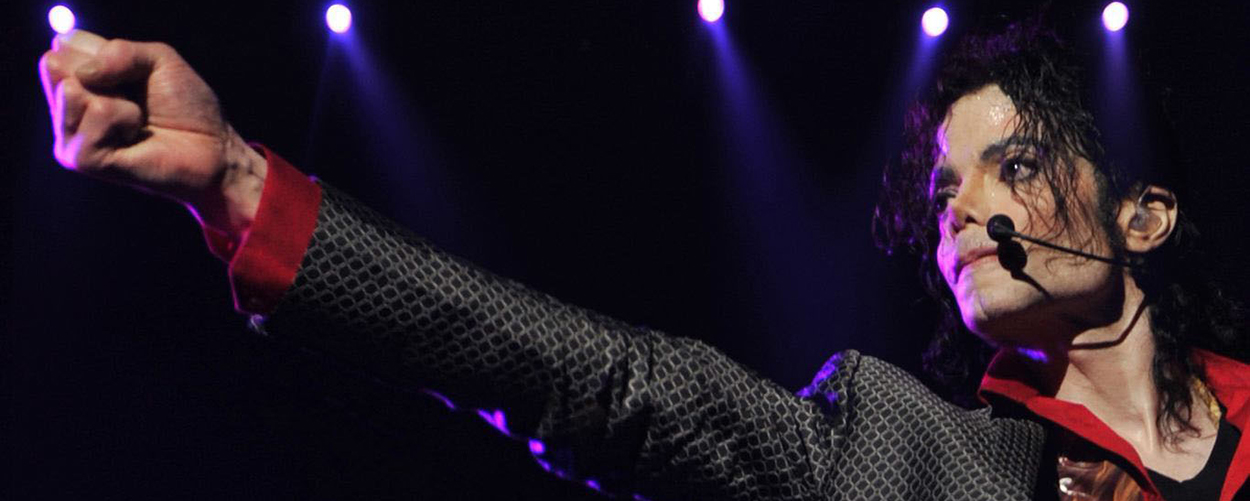This website uses cookies so that we can provide you with the best user experience possible. Cookie information is stored in your browser and performs functions such as recognising you when you return to our website and helping our team to understand which sections of the website you find most interesting and useful.
And Finally Artist News Business News Digital Labels & Publishers
Three posthumous Michael Jackson songs removed from streaming services – although not because they’re fakes, estate insists
By Andy Malt | Published on Wednesday 6 July 2022

Three Michael Jackson songs that appeared on his 2010 posthumous album ‘Michael’ have been removed from streaming services, amid continued claims that they were actually sung by an impersonator.
Although, it’s important to note, their removal has “nothing to do with their authenticity”. It’s just that the singer’s fans have become so focussed on the fake vocal claims linked to these tracks that they’ve all – all of them – forgotten that he ever made any other music. Or something like that.
“The removal of these three songs has nothing to do with their authenticity”, says a spokesperson. “The [Jackson] estate and Sony Music believe the continuing conversation about the tracks is distracting the fan community and casual Michael Jackson listeners from focusing their attention where it should be – on Michael’s legendary and deep music catalogue”.
Yeah, too right. I can’t believe you all forgot about Michael’s legendary and deep music catalogue. It’s so legendary. And so very very deep.
Anyway, right, this probably requires a lengthy recap. Michael Jackson died in 2009. I’m assuming we don’t need to go over all that again. He is dead. Just accept it. After his death, among other things, his estate announced a very grand plan indeed to release ten new albums featuring previously unreleased material.
The first of those, ‘Michael’, was released in 2010, followed by a second, ‘Xscape’, in 2014. The other eight are still pending. Possibly because of the controversy surrounding the first. Or maybe more likely because of some other Jackson-related controversies. But either way, as soon as ‘Michael’ came out, a big old controversy was whipped right up.
‘Michael’ featured ten unfinished tracks that had been recorded throughout Jackson’s career, with work on them completed by various producers led by Timbaland. The tracks that caused controversy were ‘Breaking News’, ‘Monster’ and ‘Keep Your Head Up’. These all came from one recording session with producer Eddie Cascio, and – numerous people, including several members of the Jackson family, argued – the vocals on the final versions of these tracks were not Jackson’s.
The estate, which worked with Sony Music’s Epic label on the releases, took those allegations seriously at the time. It had its lawyer, Howard Weitzman, put out a letter to fans outlining the process it had been through when stitching together the various recording sessions that made up ‘Michael’, and the efforts it had gone to in order to ensure the authenticity of the vocals.
Still, so angry about all of this was one fan in particular, Vera Serova, that in 2014 she sued the Jackson estate, Sony Music and various other people involved with the release of the record.
As that case made its way through the courts, there was a brief flurry of excitement in 2018 when some people believed that a lawyer working for Sony and the estate had admitted that the songs were in fact fakes.
It was during an appeal hearing that a defence lawyer made some kind of “if the vocals were faked” statement in order to present an argument for dismissal of the lawsuit on First Amendment and anti-SLAPP grounds. That was then reported as the Jackson side conceding that the vocals on ‘Breaking News’, ‘Monster’ and ‘Keep Your Head Up’ were definitely super faked.
The lawyer repping both Sony and the estate in the case, Zia Modabber, then issued a statement denying that any such claim had been made, stating: “No one has conceded that Michael Jackson did not sing on the songs. The hearing … was about whether the First Amendment protects Sony Music and the estate and there has been no ruling on the issue of whose voice is on the recordings”.
The appeals judges hearing all those First Amendment and anti-SLAPP arguments subsequently sided with Sony and the estate, removing both as defendants. Among the various reasons given for that decision, the judges said that Serova’s claim that a singer called Jason Malachi had actually sung on the songs was a matter of opinion rather than fact.
Weitzman said at the time that that ruling constituted “a total victory” for the Jackson side. Although, of course, it offered no conclusive ruling on whether or not the songs were the real deal or not. The decision to remove Sony and the estate was upheld in a further appeal in 2020, but still without a conclusion to the main claim. What’s left of the case is now with the California Supreme Court.
And so the debate has continued. Continued and continued and continued. So much so, that more than a decade after the allegedly faked songs were released, it’s apparently still the only thing that both dedicated and casual Michael Jackson fans can talk or think about. Or so that new statement from the estate suggests.
As a result, ‘Michael’ has now gone from being a ten track to a seven track album. Whether or not this will put the whole thing to bed remains to be seen. But, fingers crossed, everyone now realises that Jackson recorded some other stuff during his lifetime.
This story is discussed on this edition of our Setlist podcast.





